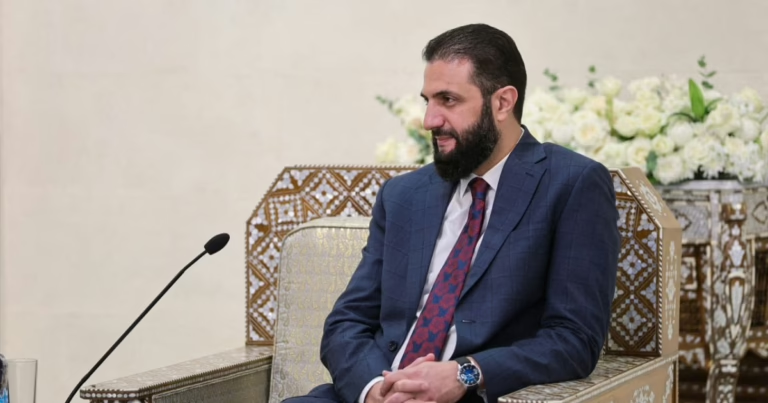President Ahmed al-Sharaa will directly appoint one-third of the seats in Syria’s new People’s Assembly.
Published On 21 Sep 2025
On October 5, Syria will hold elections for its People’s Assembly, marking the first parliamentary vote since the ousting of Bashar al-Assad late last year.
According to the state news outlet SANA, the election will be conducted throughout all electoral districts nationwide.
This development arrives as the newly established government endeavors to restore state institutions and secure legitimacy amid ongoing regional and global initiatives aimed at stabilizing the conflict-ravaged nation.
Out of the 210 seats in the assembly, President Ahmed al-Sharaa will appoint one-third directly. The remaining seats will be filled through selections by local committees overseen by the electoral commission. This legislative body will be responsible for endorsing laws designed to reform long-standing state-dominated economic frameworks and ratifying international agreements that could significantly influence Syria’s diplomatic stance.
SANA reports that the new parliament is anticipated to set the stage for a more expansive democratic transition following al-Assad’s removal after nearly 14 years of civil unrest. Nonetheless, critics argue that the current electoral system falls short in representing Syria’s marginalized populations adequately.
Initially, authorities planned to hold the elections in September. However, the electoral commission has indicated delays in voting within the provinces of Suwayda, Hasakah, and Raqqa due to ongoing security challenges.
For instance, Suwayda experienced violent confrontations in July between Druze militias and Sunni Bedouin groups, while Hasakah and Raqqa remain partially controlled by the Kurdish-led Syrian Democratic Forces.
Earlier this year, in March, al-Sharaa’s administration promulgated a constitutional declaration to govern the transitional period leading up to the elections.
This declaration maintains a pivotal role for Islamic law while also affirming protections for women’s rights and freedom of speech. However, opponents have voiced concerns that the framework consolidates excessive authority within Syria’s ruling elite.
Al-Sharaa, formerly a commander within Hayat Tahrir al-Sham (HTS)-a group linked to al-Qaeda that was instrumental in toppling al-Assad-has also pursued regional diplomatic efforts to strengthen his government and enhance Syria’s security environment.
He recently emphasized in local media that engaging in security negotiations with Israel is essential, underscoring that any agreement must uphold Syria’s sovereignty and halt Israeli incursions into its airspace.

















